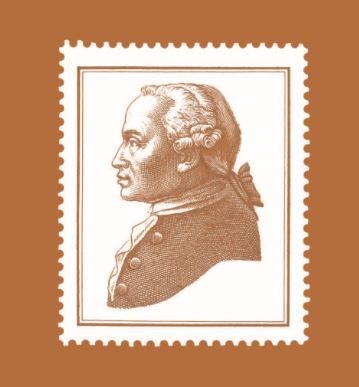We are glad to give notice of the Leuven Kant Conference 2022: The Early Reception of Kant’s Critical Philosophy (1781-1804), which will take place at KU Leuven (Institute of Philosophy, PI 00.32, Andreas Vesaliusstraat 2, Leuven) on May 26th-28th, 2022.
The event will take place on-campus and also online. To register please visit this link.
Organizers of the event: Karin de Boer (KU Leuven), Pierpaolo Betti (KU Leuven), Luis Fellipe Garcia (KU Leuven), Pavel Reichl (KU Leuven).
Below you can find the general presentation of the conference and the program of the event.
***
Debates on Kant’s philosophy that took place during his lifetime largely played out between (a) Kant’s followers, (b) critics aligned with Lockean empiricism, Humean skepticism, or Leibnizian rationalism, and (c) early post-Kantians who attempted to overcome the perceived limits of Kant’s achievements. Drawing on a distinction made by Kant himself, Reinhold in The Foundation of Philosophical Knowledge (1791) framed the reception of Kant’s philosophy by distinguishing between those who dogmatically accepted its ‘letter’ and independent minds, like himself, who sought to grasp its ‘spirit’. However, this influential distinction obscures the enormous variety of the positions that were adopted at the time as well as their complex interrelations. Self-proclaimed Kantians also moved beyond the letter of Kant’s text; Kant was attacked from many different directions; and those who appealed to the ‘spirit’ of Kant’s philosophy often defended widely diverging positions. Moreover, early post-Kantians may well have been indebted to Kant’s predecessors, defenders, and critics to a larger extent than is commonly acknowledged. Finally, various philosophers who took Kant’s insights in new directions during his lifetime do not fit Reinhold’s distinction and are today mostly forgotten by anyone but a few specialists.
The conference aims to foreground aspects of Kant’s early reception that tend to be overlooked by scholarship on either Kant or German idealism and, thus, to shed light on the full spectrum of responses to Kant’s critical philosophy from 1781 until his death in 1804.
Thursday, May 26
Panel 1: The Human Mind
Chair: Pavel Reichl (KU Leuven)
13.30-14.15 Elise Frketich (“Human Abilities” Centre for Advanced Studies in the Humanities, Berlin), Reinhold on intellectual intuition
14.15-15.00 Luis Felipe Garcia (KU Leuven), Ernst Platner’s history of the mind: an underappreciated link between Kant and Fichte
15.00-15.45 Maria Caterina Marinelli (Università degli Studi di Roma Tor Vergata / Ludwig-Maximilians-Universität München), The irrational root of the I. Salomon Maimon’s theory of consciousness
Panel 2: Beyond the First Critique
Chair: Henny Blomme (KU Leuven)
16.15-17.00 Sebastiano Ghisu (Università degli Studi di Sassari), A Spinozistic reading of Kant: August Wilhelm Rehberg
17.00-17.45 Karin de Boer (KU Leuven), Schmid’s Kantian metaphysics
17.45-18.30 Jannis Pissis (University of Crete), Salomon Maimon on the relation between formal and transcendental logic
Friday, May 27
Panel 3: Challenges to the First Critique
Chair: Karin de Boer (KU Leuven)
13.00-13.45 Marialena Karampatsou (Humboldt-Universität zu Berlin), The guiding role of things in themselves: An underappreciated theme in the (entire) pre-Fichtean criticism of Kant’s idealism
13.45-14.30 Tom Giesbers (Open University of the Netherlands), Experience over reason: Selle as a lost link in Jacobi’s reception of Kant’s philosophy
14.30-14.50 Break
14.50-15.35 Pierpaolo Betti (KU Leuven), The Kant-Eberhard Controversy: a critical reappraisal of Eberhard’s notion of ‘ground’
15.35-16.20 Tinca Prunea-Bretonnet (University of Bucharest), “Neither a sceptic, nor a dogmatic, rather both at the same time” – The Critical Kant and the Berlin Academy
Panel 4: Freedom and Right
Chair: Luis Fellipe Garcia (KU Leuven)
16.40-17.25 Michael Nance (University of Maryland), Kantian Accounts of Right, 1790-1796
17.25-18.10 John Walsh (Martin-Luther-Universität Halle-Wittenberg), The thorn in Kant’s side: J.A.H. Ulrich on the possibility of free immoral action
18.10-18.55 Jörg Noller (LMU Munich), Intelligible fatalism: Schmid on freedom and determinism
Saturday, May 28
Panel 5: History
Chair: Pierpaolo Betti (KU Leuven)
13.00-13.45 Santi Di Bella (Università degli Studi di Palermo), Heydenreich and the Critique of Pure Reason as “mirror” and “map” for the History of Philosophy
13.45-14.30 Michael Kryluk (Stony Brook University), Kant, Fichte and the vocation of the human being
Panel 6: Faith and Reason
Chair: Stephen Howard (KU Leuven)
14.50-15.35 Barbara Santini (Università di Padova), Flatt’s critique of Kant on the existence of God: the rehabilitation of the cosmological proof and the refutation of the moral proof
15.35-16.20 Reed Winegar (Fordham University), Schelling’s criticisms of Kantian moral belief
Panel 7: Political Philosophy
Chair: Elise Frketich (KU Leuven)
16.40-17.25 Günter Zöller (LMU Munich), “Political reason” contra “political experience.” Kant and F. Schlegel on republicanism and democratism
17.25-18.10 Elisabeth Theresia Widmer (University of Vienna), Proto-socialist tendencies in Johann Benjamin Erhard’s justification of revolution
18.10-18.55 Michael Gregory (University of Groningen), Kant and Schlegel on majority rule
For further information please visit the website of the event.
Printable Version


